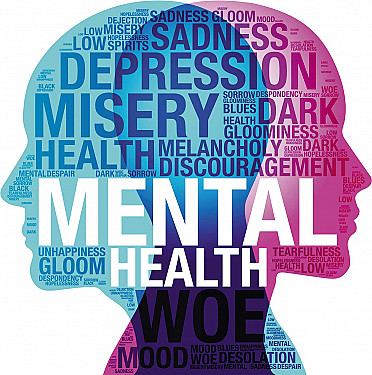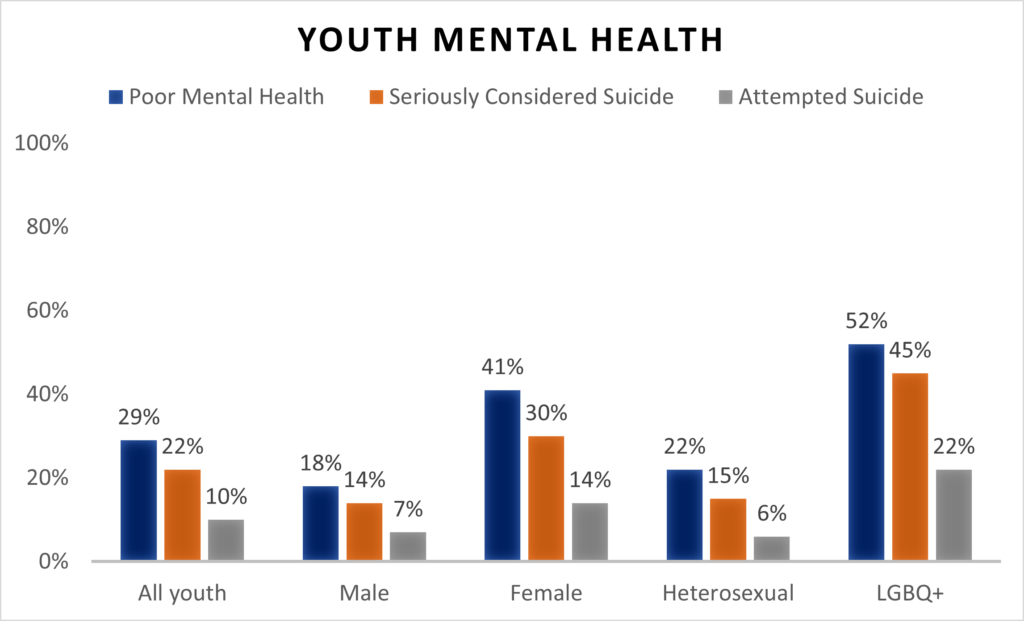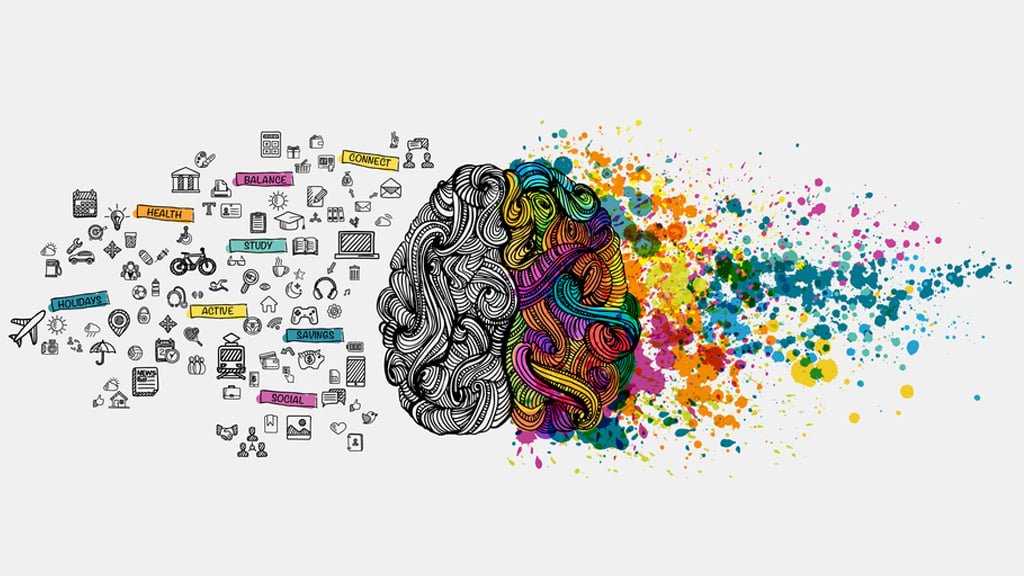
Mental health often doesn’t get the attention it deserves. We see ads for gyms, health food, or skincare products everywhere, but how often do we hear about taking care of the one thing that drives everything we do—our mind? Too often, we focus on outward appearances, but true well-being begins on the inside, in our thoughts, feelings, and emotions.
Let’s talk about mental health not just as an essential component of our health, but as the silent strength that shapes every action, reaction, and interaction. It’s time to shed light on mental health with a fresh perspective—one that celebrates the mind’s power while acknowledging the importance of its care.
Understanding Mental Health: Beyond the Basics

When we hear the term “mental health,” most of us think of conditions like anxiety or depression. But mental health is so much more than that—it’s the foundation of how we process our thoughts, handle stress, and build relationships with others. It’s about the balance between feeling overwhelmed and feeling in control, between moments of doubt and moments of clarity.
What’s crucial to understand is that mental health isn’t a fixed thing. It ebbs and flows. Some days we’re sailing smoothly; other days, we’re in rough seas. And that’s perfectly normal. What’s important is having the tools, support, and mindset to navigate both calm and stormy waters with resilience and grace.
The Everyday Impact of Mental Health
So, why does mental health matter? Simply put, it impacts every part of our life, whether we realize it or not. The way we approach challenges at work, the quality of our relationships, the decisions we make—it’s all shaped by how we feel mentally.

- The Ripple Effect on Relationships
When we feel emotionally balanced, we are better at connecting with those around us. A clear mind is more patient, understanding, and open to others’ needs. But when we’re struggling mentally, it can lead to miscommunications, irritability, or withdrawal. Our mental health is a silent partner in every relationship—whether with family, friends, or coworkers. - Work and Productivity
We’ve all been there—those days when our brains just aren’t cooperating, and we can’t seem to focus. Mental health can either fuel our motivation and creativity or drain our energy and clarity. A healthy mind fosters innovation, problem-solving, and resilience in the workplace, while a stressed or anxious mind can lead to burnout and decreased productivity. - Physical Health Connection
The mind and body are deeply intertwined. Chronic stress, anxiety, and negative thought patterns can manifest physically in the form of tension headaches, fatigue, and even digestive issues. But when we nurture our mental health, we often see improvements in our physical well-being too. Sleep improves, energy levels increase, and our immune systems strengthen.
Signs You Might Need to Pay Attention to Your Mental Health
Mental health isn’t always easy to assess from the outside. But there are some subtle, and not-so-subtle, signs that something might be off. Here are a few to watch for:

- Overthinking Everything: If your thoughts are constantly running in circles and you’re feeling mentally exhausted, it could indicate stress or anxiety.
- Difficulty Finding Joy: Losing interest in things that once brought you joy—whether it’s a hobby, spending time with loved ones, or even enjoying your favorite shows—can be a red flag for mental health struggles.
- Changes in Sleep Patterns: Sleeping too much or too little can signal underlying mental health issues like anxiety or depression.
- Physical Symptoms: Mental strain often presents itself in the form of physical discomfort—such as headaches, muscle tension, or stomach issues.
- Feeling Detached or Numb: If you’re feeling disconnected from your emotions, people, or your surroundings, it may be a sign of mental exhaustion or emotional overwhelm.
Nurturing Your Mental Health: A Unique Approach
Now, let’s focus on how to nurture and maintain mental health in a way that feels authentic to who you are. Here are some unique ways to care for your mental well-being:
1. Creative Expression Through Art or Journaling
Sometimes, words are too hard to find, but creativity can speak when nothing else will. Whether you pick up a paintbrush, a camera, or a journal, creative expression can help you process your thoughts and emotions. Art allows you to communicate what your mind may not be able to articulate in conversation. Even a simple daily journaling practice—writing down your feelings, dreams, or reflections—can help bring clarity to your mind.
2. Acknowledge Your “Not-So-Good” Days
Instead of feeling guilty or frustrated when you’re not at your best, give yourself permission to acknowledge your feelings. Mental health is not a linear journey. Some days, it’s okay to feel down or tired, and it’s okay to take things slow. By validating your own feelings rather than pushing them aside, you allow yourself the space to heal.
3. Movement That Feels Good
We’ve all heard that exercise is great for mental health, but it’s essential to find a form of movement that resonates with your body and mind. It could be a dance class, a walk in nature, yoga, or even a good old-fashioned stretch. Don’t view exercise as a “task” but as a way to release tension, clear your mind, and reconnect with yourself. Movement can be a form of therapy that brings you back to the present moment.
4. Mindful Moments, Not Just Meditations
When we think of mindfulness, we often think of formal meditation practices. But mindfulness can be much simpler—like sipping your morning coffee without distractions, noticing the textures and scents around you, or taking a deep breath before responding to a stressful situation. Small moments of mindfulness throughout the day can reduce mental clutter and help you focus on the present instead of worrying about the past or future.
5. Reach Out, Even When You Don’t Feel Like It
Isolation can be one of the hardest parts of struggling with mental health. It’s tempting to pull away when you’re not feeling your best, but isolation often makes things worse. Reach out, even if it’s just to let someone know that you’re not feeling okay. Vulnerability can be hard, but it’s often the first step toward healing. Sometimes, all you need is someone to listen—whether it’s a friend, family member, or therapist.
6. Create Healthy Boundaries
Mental health thrives in environments that honor personal boundaries. Learn to say no when you need to, set limits on your time, and protect your energy from unnecessary stressors. This isn’t selfish—it’s necessary for preserving your mental well-being.
Conclusion: Mental Health is an Ongoing Journey
We often forget that mental health isn’t a destination—it’s a journey. Some days will be better than others, and that’s okay. The key is to continue taking small steps that nurture your mind, body, and soul. Be kind to yourself and remember that asking for help, expressing your feelings, and taking time for self-care are all vital parts of maintaining mental health.
So, let’s stop ignoring the quiet, steady strength that mental health provides. It’s the backbone of everything we do, and it deserves the same level of attention and care we give to our physical health.
Remember: You are worthy of a healthy mind, and that journey starts with one small step—today.